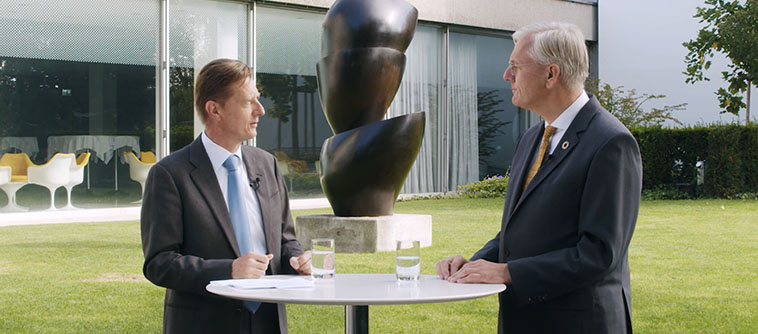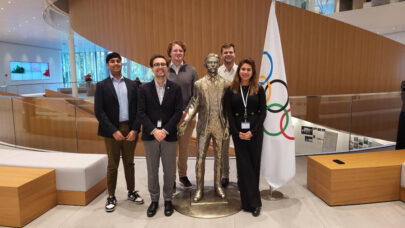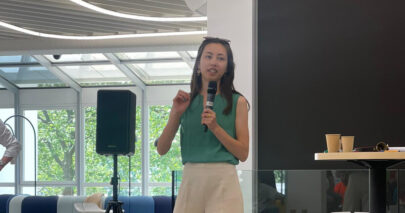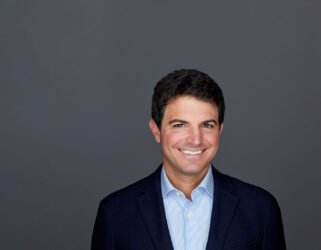The COVID-19 crisis has brought suffering around the world, with devastating social and economic effects. Health care companies – specifically in the pharmaceutical industry – have scrambled to provide diagnostics and treatment to those with the illness. But this race to fight the coronavirus has also led to a renewed focus on an important relationship –that between patient and pharma company.
The focus on health care, services and medicines caused by COVID-19 has proved a financial boon for the pharma industry. But while some are primarily interested in profits, some organizations are surmounting negative stereotypes by considering both profits and patients equally.
In an interview with IMD Professor of Governance Didier Cossin for the “High Performance Boards Conversation Series”, Chairman of the Board Christoph Franz (F. Hoffmann-La Roche AG, the world’s largest biotech company) says that by walking a mile in the patient’s shoes, the company is able to clearly chart the best way forward for both personal – and organizational – health.
Partnership in the pandemic
Franz says the challenge to develop appropriate diagnostics and therapies has led to newfound collaborations in a previously closely guarded sector.
“I would say many people in society have realized that this industry is an essential part of the solution of the Coronavirus pandemic,” said Franz. “Politics can manage it, but the solution in terms of medicines or diagnostic tests has to come from the healthcare industry.”
Unusually, the COVID-19 crisis has led to real interaction and collaboration with competitors. For example, to speed up the development of medicines to fight the pandemic, Roche partnered with US-based Regeneron to co-develop a new treatment which, if successful, might even be appropriate for prophylactic use.
In addition to the development partnership, Roche will also co-manufacture the medicine with Regeneron if it is a success. Franz acknowledges this type of capability-sharing has never been so pronounced as it is at this moment.
“COVID-19 may very well create a lasting legacy, one that can provide hope in post-pandemic times,” said Franz. “Now more than ever, we are bringing innovative medicines and diagnostic tests to more patients, more quickly.”
Seeing the patient’s point of view
This focus on health via targeted, personalized biopharmaceuticals is paramount to Roche, which says it is “doing now what patients need next”. Biopharmaceuticals are medicines developed in living organisms like bacteria, mammalian cells and yeast, unlike pharmaceuticals, which require chemical synthesis. They are truly the medicines of the future and include gene, blood and tissue-based engineering to combat previously untreatable illnesses. Biopharmaceuticals make up two thirds of Roche’s portfolio and the world’s largest biotech company is committed to growing that number.
“This is a constant reminder of the purpose of the company,” says Franz, who readily acknowledges numbers are important for profitability but believes Roche’s role is more about the product and what the company can deliver. “We ask ourselves how we can contribute to the positive development of this world.”
Throughout the pandemic, Roche has focused on reliable, high-quality testing. The company’s emergency response teams worked round the clock to develop a diagnostic test to detect both the virus itself and its antibodies in the early days of the crisis.
“Not only did we concentrate on new diagnostic tests,” said Franz, “but on having a look at our existing medicines to determine whether they could contribute to alleviating some of the growing burden.”
For Franz, the board’s balancing act between stakeholders and shareholders – in other words, public concerns and profitability – has not been difficult to achieve. By carefully weighing options and keeping priorities straight, Roche has transited the pandemic successfully, bringing diagnostics to the forefront and bringing hope for a therapy to those in need.
For more on Roche Chairman of the Board Christoph Franz, join IMD Professor of Governance Didier Cossin in the fourth episode of the “High Performance Boards Conversation Series” here.



